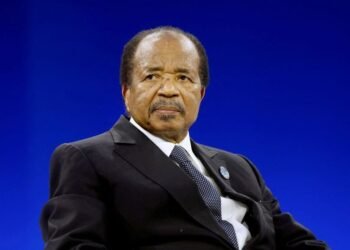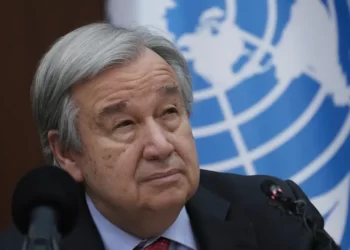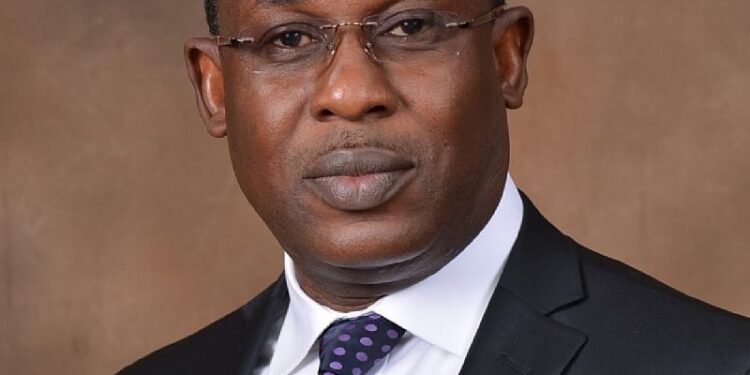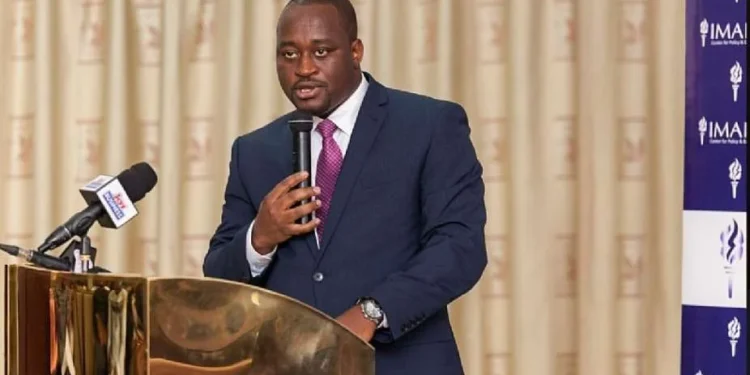Tunisian President Kais Saied is poised for an easy reelection victory in Sunday’s presidential vote, with major opponents either imprisoned or barred from running.
This election marks the third presidential contest since the 2011 revolution that toppled longtime leader Zine El Abidine Ben Ali, sparking the Arab Spring. The North African nation, once praised for its democratic gains, is now mired in political controversy.
Saied, who campaigned in 2019 on promises to deliver a “New Tunisia,” won his first term as a political outsider. His platform focused on empowering young people and decentralizing government.
Hatem Nafti, a political commentator and author of a forthcoming book on Saied’s authoritarian rule, said rights and freedoms have been curtailed since Saied’s “coup d’etat” in 2021. “But things have reached a new level during this election, with attempts to prevent any succession [to Saied].”
In July 2021, Saied dismissed his prime minister, dissolved parliament, and later introduced a new constitution that expanded his executive powers. His actions, which his opponents likened to a coup, have drawn widespread criticism from pro-democracy advocates.
Despite this backlash, Saied’s new constitution was approved in a 2022 referendum, although turnout was notably low. The country has since experienced a series of arrests targeting journalists, activists, and political figures who dared to speak out against the president.

Authorities have cited national security concerns and a stringent anti-fake news law to justify these crackdowns, leading many to accuse Saied of using the legal system to stifle dissent.
Voter turnout in local and parliamentary elections held in 2022 and 2023 was similarly low, as Tunisians faced deepening economic problems and growing political apathy. The president’s critics argue that his consolidation of power has contributed to the stagnation of Tunisia’s fragile democracy.
Limited Choices, Rising Tensions
Seventeen candidates initially sought to run in this year’s presidential election. However, Tunisia’s election authority, ISIE, approved only three candidates: Saied, Zouhair Maghzaoui, and Ayachi Zammel.
Maghzaoui, a longtime politician, has campaigned against Saied’s economic policies and recent political arrests, but his earlier support for the president’s constitutional reforms has alienated many opposition parties.
Meanwhile, Zammel, faces legal troubles, having been sentenced in four voter fraud cases during the campaign.
The election authority’s decision to block other candidates from running has heightened tensions. The ISIE disregarded a court ruling last month that called for reinstating three additional contenders. Many opposition figures remain behind bars, charged with crimes related to their political activities.
Among those excluded from the race is Rached Ghannouchi, the leader of the Islamist party Ennahda, which rose to prominence after the Arab Spring. Ghannouchi, now 83, was imprisoned last year after criticizing Saied.
Another prominent figure, Abir Moussi, head of the Free Destourian Party, was also jailed after opposing the president. Moussi’s rhetoric has been characterized by nostalgia for Tunisia’s pre-Arab Spring era, and she is known for her opposition to Ennahda’s Islamist platform.
Smaller opposition parties have also been sidelined. With several potential challengers in prison or barred from running, Saied’s path to victory seems clear. His remaining opponents face significant obstacles, and their campaigns have been overshadowed by legal battles and limited public support.
As Saied prepares to secure a second term, opposition groups continue to decry the electoral process.
The National Salvation Front, a coalition of secular and Islamist parties including Ennahda, has denounced the election as a “sham,” calling into question whether Tunisia’s democracy, once hailed as a rare success story of the Arab Spring, can be salvaged.
READ ALSO: Ansah-Asare Urges Labour to Defy Akufo-Addo’s Galamsey Plea






















